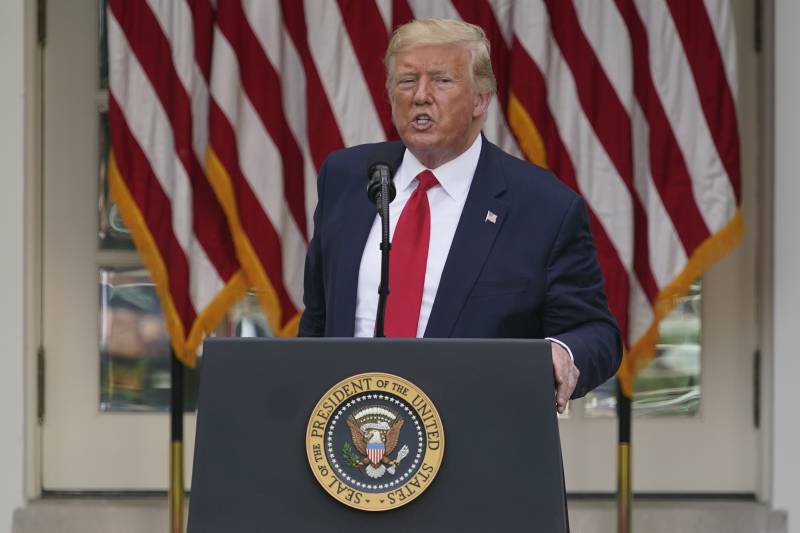Courts have repeatedly upheld the law in favor of technology companies, even when the statute was used to defend websites advertising children who were forced into sex trafficking.
Trump's order seeks to chip away at that protection by offering a new interpretation of the law. The order argues, in essence, that if the social media companies restrict certain voices on their platforms, the companies should be stripped of their legal immunity, opening the doors to a wave of lawsuits over content seen as defamatory.
Legal experts greeted the order with heavy skepticism, saying, absent a new law passed by Congress, it would not be legally binding.
"It flies in the face of 25 years of judicial precedent, that has been federal precedent in almost every circuit court," said Kate Klonick, a professor at St. John's University School of Law in New York. "It's not the role of the president to interpret federal law."
The order was "a very, very clear piece of political theater," Klonick told NPR, adding that the action is "unlikely to have any kind of weight or authority."
The order directs the Federal Communications Commission to start a rule-making process to clarify when social media companies should keep protections under the law.
Height Capital Markets analysts Chase White and Clayton Allen described the executive order as "mostly noise without any teeth."
In a note to investors, they wrote that the FCC only exerts limited control over social media companies, which are not regulated like traditional broadcasters. And historically, the FCC has been opposed to social media regulation, White and Allen pointed out.
Already, some of the five members of FCC are expressing concern about the White House's action.
"This does not work. Social media can be frustrating. But an Executive Order that would turn the Federal Communications Commission into the President's speech police is not the answer," FCC member Jessica Rosenworcel said in a statement. "It's time for those in Washington to speak up for the First Amendment. History won't be kind to silence."
Kate Ruane, senior legislative counsel for the American Civil Liberties Union, called the order an attempt to punish social media companies for posts that displease the president.
"Ironically, Donald Trump is a big beneficiary of Section 230," Ruane said. "If platforms were not immune under the law, then they would not risk the legal liability that could come with hosting Donald Trump's lies, defamation and threats."
GOP's Hawley: Companies that act like publishers should be treated as ones
Backers of Trump's order, such as Sen. Josh Hawley, R-Missouri, said adding warning labels to the president's tweets is an editorial decision that shows the social media platform is acting more like a publisher and that the company should lose its special protection.
"It makes little sense to treat companies that publish their editorial comments about others' content as if they are mere distributors. Companies that act like publishers should be treated like publishers," Hawley wrote in a letter to Twitter's Dorsey.
House Speaker Nancy Pelosi, D-California, supports Twitter's initiative to flag tweets that contain falsehoods. She said Trump's order directs the federal government to "dismantle efforts to help users distinguish fact from fiction."
She said the order does not address the proliferation of disinformation on social media, an issue central in the 2016 presidential election and one that's expected to be influential in November.
"Again and again, social media platforms have sold out the public interest to pad their corporate profits. Their business model is to make money at the expense of the truth," Pelosi said.

9(MDAxOTAwOTE4MDEyMTkxMDAzNjczZDljZA004))
